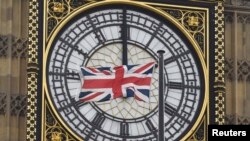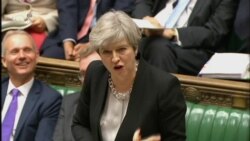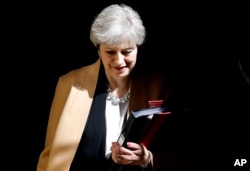The British parliament voted overwhelmingly Wednesday to back Prime Minister Theresa May’s call to hold early general elections on June 8, three years ahead of schedule.
May pushed for the snap poll in hopes of smoothing the Brexit process.
The vote in parliament was 522 to 13. Members had been widely expected to approve the early poll, which analysts say will likely give May a stronger hand in negotiating Britain’s exit from the European Union but also gives the opposition a greater voice in how the Brexit process is carried out.
The two-year exit negotiation process began last month when May triggered Article 50 of the Lisbon EU treaty. However, the British leader has been weighed down by the opposition’s protests over how the negotiations on trade and taxes are conducted.
May said the early vote is necessary to ensure that her government can “strengthen our position in these negotiations.”
“I believe this is the way we get clarity and stability in the future for the United Kingdom beyond Brexit,” she said.
WATCH: May on early vote
On Wednesday, May repeated her belief that there is “no turning back” on Brexit.
The early general election will not change the two-year departure timetable, but has opened up a new episode of bickering over the measure, which has bitterly divided the country for the past year.
Courting opposition
May has challenged Britain’s deeply fractured opposition to band together and present their arguments against Brexit.
Labor Party leader Jeremy Corbyn appeared to accept that challenge by welcoming early elections. But in a heated exchange before the vote in parliament Wednesday, Corbyn criticized May for her decision to not take part in any televised debates ahead of the June poll.
Corbyn also denied May’s allegations that he and his fellow Brexit opponents, the Liberal Democrats, have been working to derail the process.
“There is no obstacle to the government negotiating, but instead of getting on with the job she is painting herself as the prisoner of Lib Dem threats to grind government to a standstill," Corbyn said, adding that the Liberal Democrats have "only nine" seats in parliament.
With the Labor Party’s popularity at a historic low, analysts widely expect Theresa May’s Conservatives and their allies to retain a majority in parliament, meaning May would remain prime minister during course of the Brexit negotiations.
Last year, polls failed to predict the passage of the referendum on Brexit and observers now caution that in seeking to strengthen her mandate, May also risks her political career, depending on whether voter attitudes change in the next seven weeks.







